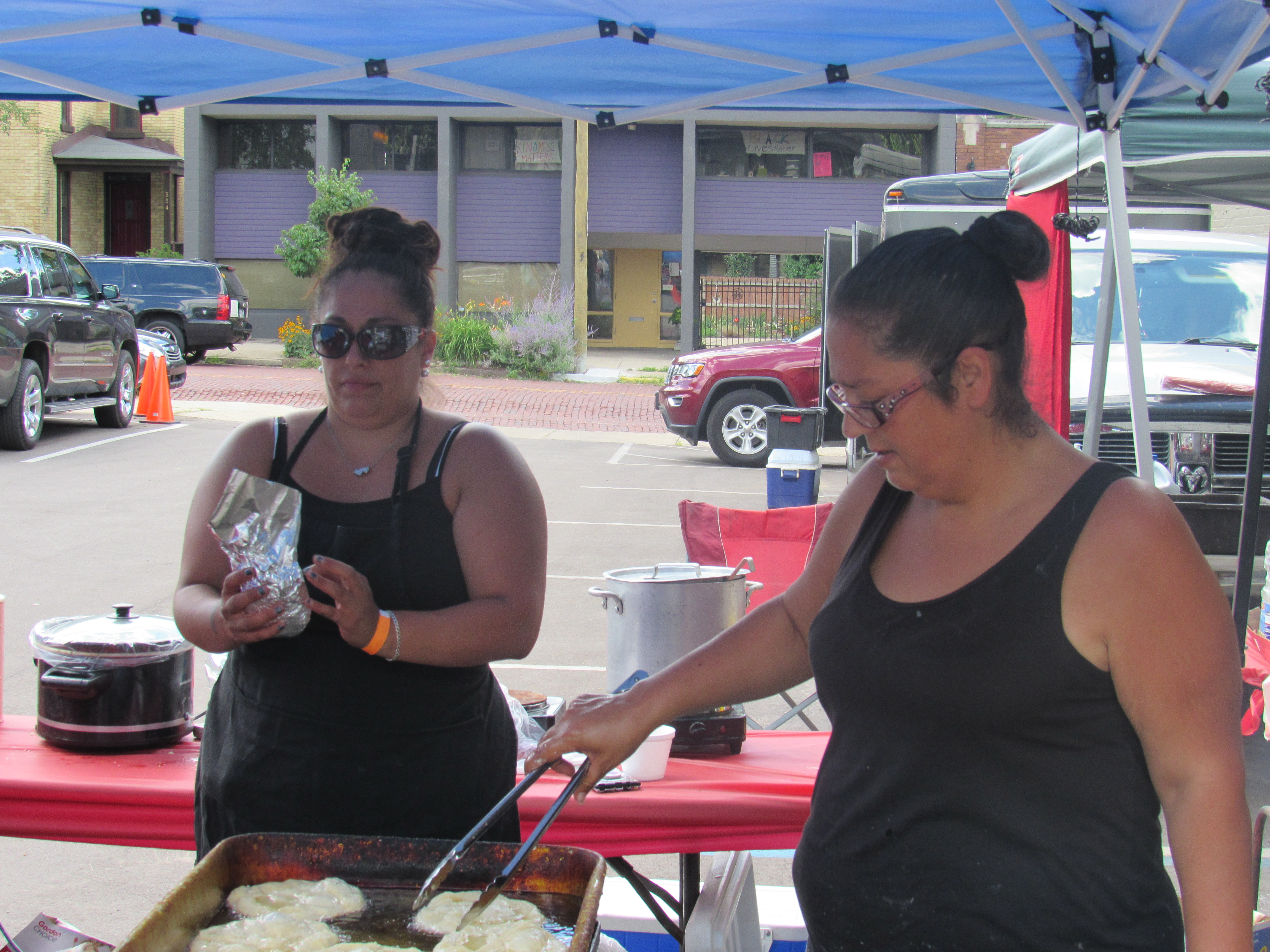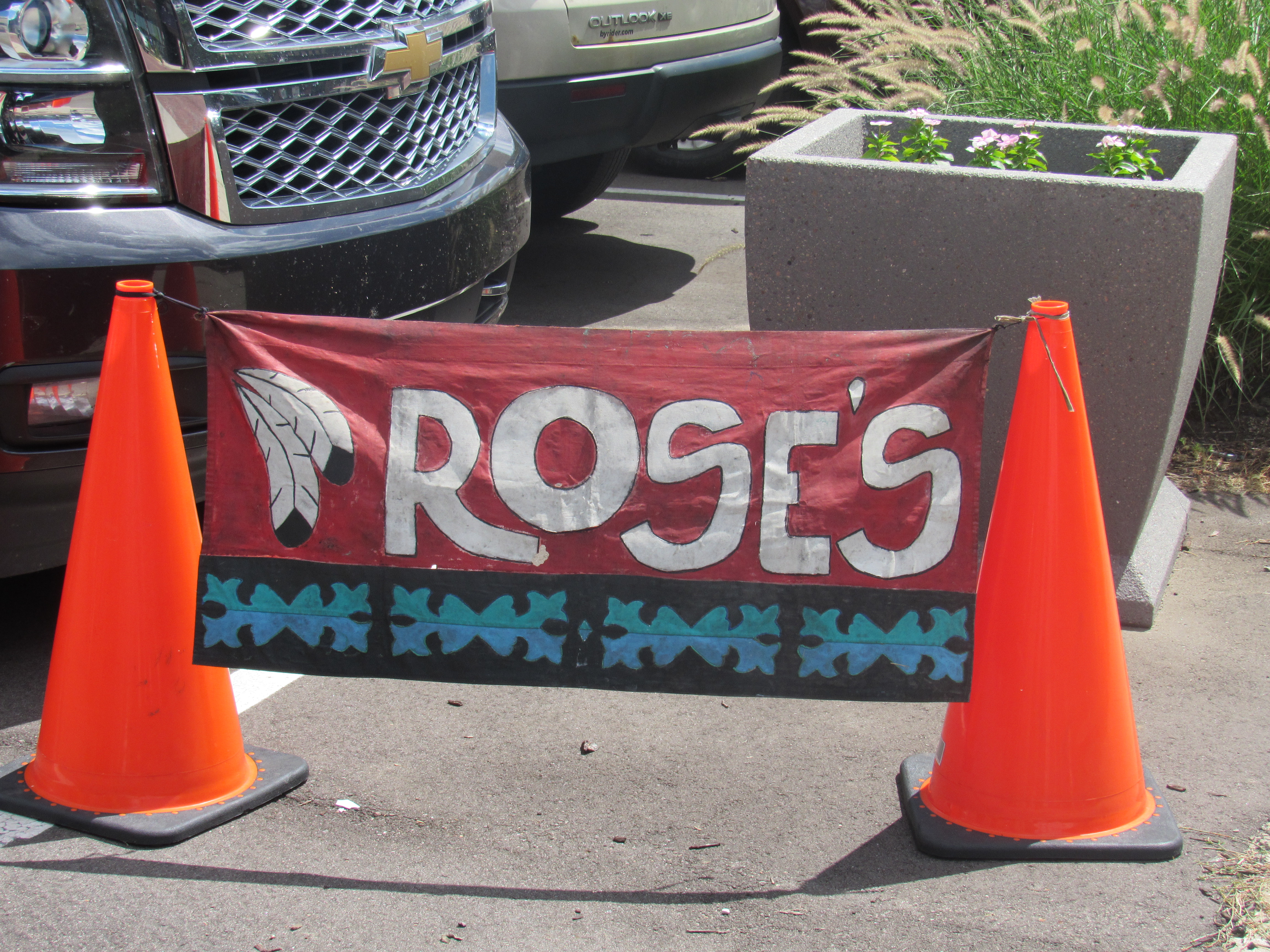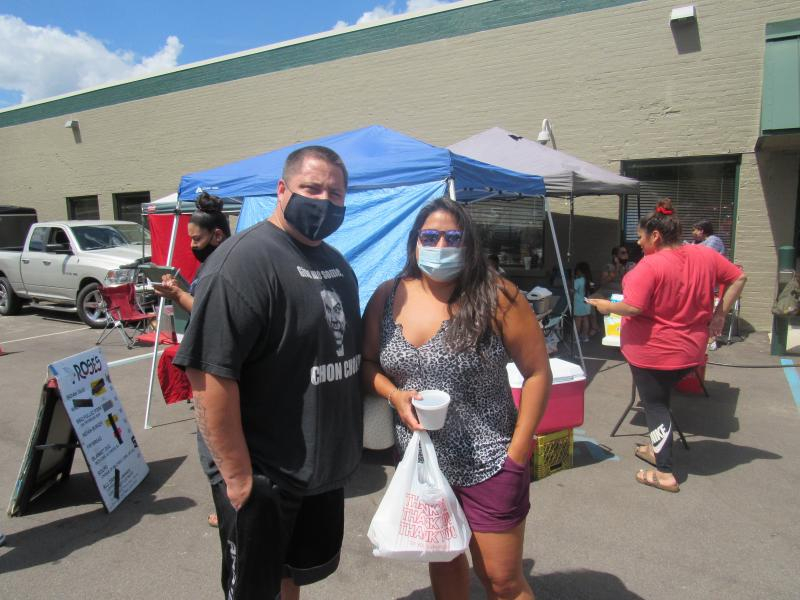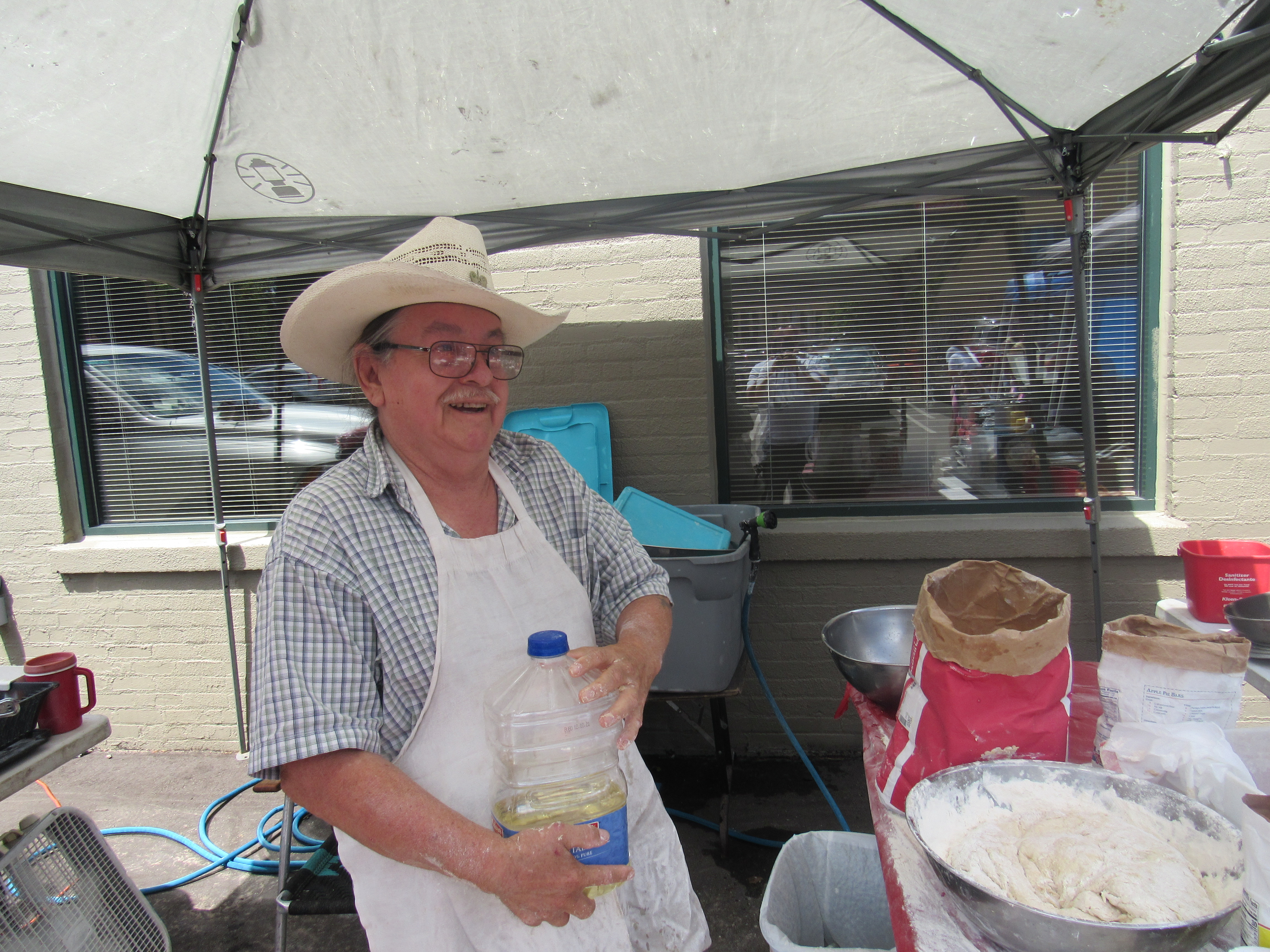
- Details
- By Levi Rickert
GRAND RAPIDS, Mich. — With the COVID-19 pandemic changing normalcy across the country, those seeking to attend powwows have had to settle for virtual dancing and drumming. While virtually watching powwow dancers dressed in their colorful regalia satisfies cultural exchange for some, a popular Michigan powwow food vendor realized there are those who have been missing American Indian food fare.
 Rose’s has been a popular at Michigan powwows for decades. Photo by Levi Rickert.
Rose’s has been a popular at Michigan powwows for decades. Photo by Levi Rickert.
Since Michigan powwows were cancelled due to COVID-19 this summer, Rose’s Food Stand, which normally sets up business at powwows throughout Michigan from May until October, has set up a food tent complete to sell frybread, Indian tacos and Indian burgers (a hamburger served on frybread) and wild rice soup.
Rose’s Food Stand, renowned to those who frequent Michigan powwows, has been operating since the late 1960s when powwows reemerged in the state. Started by Rose Shalifoe, the food stand is operated now by her family who use her recipes. Shalifoe passed away in 2005.
Last Friday, Rose’s brought its food to the parking lot of the Nottawaseppi Indian Health Clinic Center in Grand Rapids, Mich. Those who showed up in facial masks practiced safe distancing as they waited in line whetting their appetites from the aroma of frybread and taco meat.
“We know people miss coming to powwows to buy our food and some of us earn our money during the summer from our booth,” Alycia Atkinson (Sault Ste. Marie Chippewa), granddaughter of Rose Shalifoe, said.
By the looks of the steady stream of customers, many of them tribal citizens from surrounding tribes, the idea of bringing powwow food seems to be working.
 Cousins Jerry Chivis and Stephanie Stinger were happy to see each other as they purchased their lunches. Photo by Levi Rickert.
Cousins Jerry Chivis and Stephanie Stinger were happy to see each other as they purchased their lunches. Photo by Levi Rickert.
For Stephanie Stinger (Little River Band of Ottawa Indians) buying her lunch was a nice treat. While waiting in line she saw one of her cousins behind her. Stinger said she heard about Rose's being there from family and a Facebook posting.
“I love their food and I like to support powwow vendors,” Stinger said.
Jerry Chivis (Little River Band of Ottawa Indians) came down to buy wild rice soup.
“Any opportunity to buy the soup, I make my way out to get some,” Chivis said.
In addition to the health clinic, Rose’s has visited the Pokagon Potawatomi in Dowagiac, Mich. and the Pine Creek Indian Reservation, home to the Nottawaseppi Huron Potawatomi in Athens, Mich.
 Tom Marshall is an eight-time frybread champion. Photo by Levi Rickert.
Tom Marshall is an eight-time frybread champion. Photo by Levi Rickert.
On hand Friday to mix up the frybread dough was Tom Marshall (Rosebud Sioux), the son-in-law of Rose Shalifoe.
Atkinson says Marshall, affectionately called Grandpa Tom, is an eight-time frybread champion. He won his awards at Indian frybread contests at the annual Keweenaw Bay Indian Community Summer Powwow in Baraga, Mich.
“This is my mother-in-law’s recipe. She started me off carrying flour for her, then she taught me how to make it. I have been making it for 30 years,” Marshall said.
Atkinson says the Rose’s crew is ready to bring the food stand to other Michigan tribes upon request.
More Stories Like This
Native News Weekly (August 25, 2024): D.C. BriefsUS Presidents in Their Own Words Concerning American Indians
Oral History Project Announces 14th Stop in Portland, Oregon: NABS Continues to Gather Crucial Stories Across Indian Country
Governor Newsom proclaims Native American Heritage Month
Hundreds to Join Second Annual Native American Heritage Month Parade in Sacramento
Help us tell the stories that could save Native languages and food traditions
At a critical moment for Indian Country, Native News Online is embarking on our most ambitious reporting project yet: "Cultivating Culture," a three-year investigation into two forces shaping Native community survival—food sovereignty and language revitalization.
The devastating impact of COVID-19 accelerated the loss of Native elders and with them, irreplaceable cultural knowledge. Yet across tribal communities, innovative leaders are fighting back, reclaiming traditional food systems and breathing new life into Native languages. These aren't just cultural preservation efforts—they're powerful pathways to community health, healing, and resilience.
Our dedicated reporting team will spend three years documenting these stories through on-the-ground reporting in 18 tribal communities, producing over 200 in-depth stories, 18 podcast episodes, and multimedia content that amplifies Indigenous voices. We'll show policymakers, funders, and allies how cultural restoration directly impacts physical and mental wellness while celebrating successful models of sovereignty and self-determination.
This isn't corporate media parachuting into Indian Country for a quick story. This is sustained, relationship-based journalism by Native reporters who understand these communities. It's "Warrior Journalism"—fearless reporting that serves the 5.5 million readers who depend on us for news that mainstream media often ignores.
We need your help right now. While we've secured partial funding, we're still $450,000 short of our three-year budget. Our immediate goal is $25,000 this month to keep this critical work moving forward—funding reporter salaries, travel to remote communities, photography, and the deep reporting these stories deserve.
Every dollar directly supports Indigenous journalists telling Indigenous stories. Whether it's $5 or $50, your contribution ensures these vital narratives of resilience, innovation, and hope don't disappear into silence.
 The stakes couldn't be higher. Native languages are being lost at an alarming rate. Food insecurity plagues many tribal communities. But solutions are emerging, and these stories need to be told.
The stakes couldn't be higher. Native languages are being lost at an alarming rate. Food insecurity plagues many tribal communities. But solutions are emerging, and these stories need to be told.
Support independent Native journalism. Fund the stories that matter.
Levi Rickert (Potawatomi), Editor & Publisher

